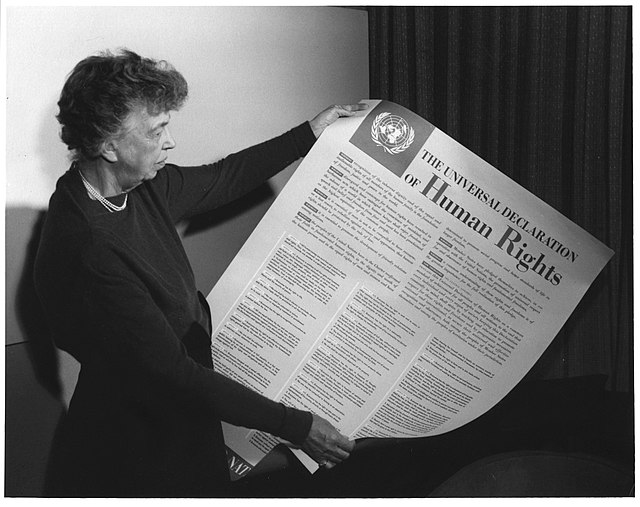An obscenity is any utterance or act that strongly offends the prevalent morality of the time. It is derived from the Latin obscēnus, obscaenus, "boding ill; disgusting; indecent", of uncertain etymology. Generally, the term can be used to indicate strong moral repugnance and outrage in expressions such as "obscene profits" and "the obscenity of war". As a legal term, it usually refers to descriptions and depictions of people engaged in sexual and excretory activity.
Cover of an undated American edition of Fanny Hill, c. 1910
The 18th century book Fanny Hill has been subject to obscenity trials at various times (image: plate XI: The bathing party; La baignade)
Freedom of speech is a principle that supports the freedom of an individual or a community to articulate their opinions and ideas without fear of retaliation, censorship, or legal sanction. The right to freedom of expression has been recognised as a human right in the Universal Declaration of Human Rights and international human rights law by the United Nations. Many countries have constitutional law that protects free speech. Terms like free speech, freedom of speech, and freedom of expression are used interchangeably in political discourse. However, in a legal sense, the freedom of expression includes any activity of seeking, receiving, and imparting information or ideas, regardless of the medium used.

Eleanor Roosevelt and the Universal Declaration of Human Rights (1948)—Article 19 states that "Everyone has the right to freedom of opinion and expression; this right includes freedom to hold opinions without interference and to seek, receive and impart information and ideas through any media and regardless of frontiers."
Orator at Speakers' Corner in London, 1974
Permanent Free Speech Wall in Charlottesville, Virginia, U.S.
Title page of Index Librorum Prohibitorum, or List of Prohibited Books (Venice, 1564)






